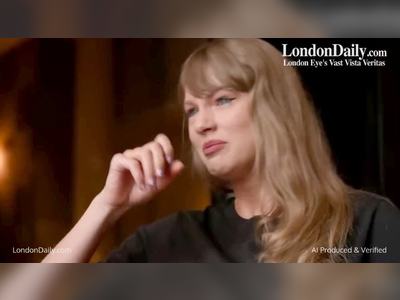
Jaguar Land Rover Pauses US Shipments Amid Rising Tariffs
The company reassesses its strategy in response to new trade regulations affecting automotive exports.
Jaguar Land Rover (JLR) has announced a temporary halt in shipments of its UK-manufactured vehicles to the United States for the month of April, as the company evaluates the impact of recent tariffs implemented by the US government.
The 25% tariff on imported cars and light trucks was enforced on April 3, 2023.
A spokesperson for JLR stated that the US is a significant market for its luxury automotive brands.
The company intends to address the new trading conditions with its business partners and has initiated this temporary pause in shipments as part of its short-term strategy while developing longer-term plans.
Owned by India’s Tata Motors, JLR is among the largest automotive producers in Britain, with annual sales of approximately 400,000 vehicles, including the Range Rover Sport, Defender, and other models.
Exports to the US make up nearly 25% of these sales, highlighting the importance of the American market to JLR and its role within the British automotive sector, which accounts for £1 in every £8 of the country's exports.
Reports suggest that JLR currently has a supply of cars in the US that were manufactured prior to the tariff implementation, which will not be subjected to the new tariffs.
The logistics of shipping vehicles across the Atlantic typically takes around 21 days.
The viability of the UK car industry, which employs approximately 200,000 individuals in manufacturing, has come under scrutiny as a result of the tariffs.
According to the Institute for Public Policy Research (IPPR), more than 25,000 direct jobs in the car manufacturing sector could be at risk as exports to the US are anticipated to decline.
The US ranks as the second largest importer of British-made cars, following the European Union, holding a nearly 20% share of the market, based on data from the Society of Motor Manufacturers and Traders (SMMT).
In conjunction with these developments, US President Trump announced additional tariffs on goods from various countries, further straining global trade relations.
The FTSE 100 index experienced a significant drop, marking its worst performance since the onset of the COVID-19 pandemic on the day after the tariff announcements.
The UK government is concentrating its efforts on negotiating a trade deal with the United States.
Meanwhile, Labour Party leader Keir Starmer has scheduled discussions with foreign leaders about the tariffs, including conversations with Australian Prime Minister Anthony Albanese and Italian Prime Minister Giorgia Meloni, both of whom acknowledged the potential damage of an extensive trade war.
Following the tariff announcements, SMMT Chief Executive Mike Hawes expressed concern over the implications for the automotive sector, emphasizing that, although the effect on UK products is less pronounced compared to other major economies, it remains a significant challenge for an industry already facing numerous obstacles.
Hawes indicated that while hope remains for a negotiated deal between the UK and the US, the immediate imposition of these tariffs poses additional barriers.
The 25% tariff on imported cars and light trucks was enforced on April 3, 2023.
A spokesperson for JLR stated that the US is a significant market for its luxury automotive brands.
The company intends to address the new trading conditions with its business partners and has initiated this temporary pause in shipments as part of its short-term strategy while developing longer-term plans.
Owned by India’s Tata Motors, JLR is among the largest automotive producers in Britain, with annual sales of approximately 400,000 vehicles, including the Range Rover Sport, Defender, and other models.
Exports to the US make up nearly 25% of these sales, highlighting the importance of the American market to JLR and its role within the British automotive sector, which accounts for £1 in every £8 of the country's exports.
Reports suggest that JLR currently has a supply of cars in the US that were manufactured prior to the tariff implementation, which will not be subjected to the new tariffs.
The logistics of shipping vehicles across the Atlantic typically takes around 21 days.
The viability of the UK car industry, which employs approximately 200,000 individuals in manufacturing, has come under scrutiny as a result of the tariffs.
According to the Institute for Public Policy Research (IPPR), more than 25,000 direct jobs in the car manufacturing sector could be at risk as exports to the US are anticipated to decline.
The US ranks as the second largest importer of British-made cars, following the European Union, holding a nearly 20% share of the market, based on data from the Society of Motor Manufacturers and Traders (SMMT).
In conjunction with these developments, US President Trump announced additional tariffs on goods from various countries, further straining global trade relations.
The FTSE 100 index experienced a significant drop, marking its worst performance since the onset of the COVID-19 pandemic on the day after the tariff announcements.
The UK government is concentrating its efforts on negotiating a trade deal with the United States.
Meanwhile, Labour Party leader Keir Starmer has scheduled discussions with foreign leaders about the tariffs, including conversations with Australian Prime Minister Anthony Albanese and Italian Prime Minister Giorgia Meloni, both of whom acknowledged the potential damage of an extensive trade war.
Following the tariff announcements, SMMT Chief Executive Mike Hawes expressed concern over the implications for the automotive sector, emphasizing that, although the effect on UK products is less pronounced compared to other major economies, it remains a significant challenge for an industry already facing numerous obstacles.
Hawes indicated that while hope remains for a negotiated deal between the UK and the US, the immediate imposition of these tariffs poses additional barriers.










